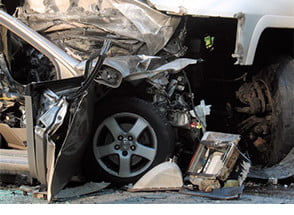Death of a loved one brings many emotions. In cases of wrongful death, those emotions can be channeled into a civil suit against the party responsible for the death. However, not all deaths are considered wrongful. For families trying to get through the grief and see justice done for their deceased loved one, here is some information to help you decide if a wrongful death suit is worth exploring.
The Stats
In 2007 (the most recent available vital statistics records in Indiana), there were more than 53,000 deaths recorded in Indiana. Of those, 914 were caused by motor vehicle accidents, and another 1,636 were attributed to other, non-motor vehicle related accidents. Many of the incidents recorded in these statistics did not result in wrongful death cases. Some of the incidents were truly accidents where no one was at fault.
A small number of the incidents should have resulted in wrongful death legal action, but families either chose not to pursue legal action or did not realize that legal action was possible.
The Legal Definition of Wrongful Death
The state of Indiana legal code describes wrongful death as death resulting from a “wrongful act” or “omission” from the responsible party. The responsible party can be an individual, group, or company. A wrongful act is anything that violates the rights of another person. The act can be illegal, or a violation of rights and morals. A wrongful act can also be an act of libel or anything meant to cause harm to the deceased.
Taking Legal Action
A wrongful death action must be commenced within two years of the victim’s death. The families of the deceased or persons responsible for medical expenses after the death can bring the action. According to Indiana state law, the civil action resulting from wrongful death can be used to recover medical and burial expenses, as well a monetary amount to represent the loss of work, love or companionship. Legal expenses resulting from estate administration are also recoverable.
Limitations
Indiana state law does place limitations on wrongful death cases on behalf of unmarried adults with no children. Representatives of these victims cannot seek punitive damages. In addition, the loss of love and affection recovery cannot exceed $300,000.
Professional Assistance Needed
The value of a human life is impossible to determine. But that doesn’t mean that those at fault should get a free pass. What is rightfully owed to the victim’s survivors requires historical data and economic valuations that an expert must handle. A personal injury attorney is the only person with the knowledge to prepare, file, and argue the family’s case on their deceased loved one’s behalf.
If you find yourself grieving over the senseless death of a loved one, contact one of our trusted personal injury attorneys in South Bend to explore your options. The wrongs that you believed caused the death could be used to seek justice against the wrongdoers.












